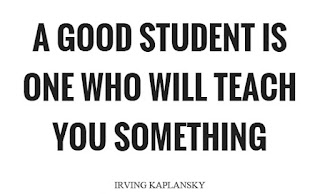This is a time of great waiting and wondering by high school seniors who are eager to hear about their college applications. Despite assurances from the grown ups that students have worked hard and made good choices, there is an abyss between hitting Send and hearing back that often gets filled by one question: Will I get in?
If these same caring adults have been honest with their seniors, the real answer here is “It depends”. In case they were hoping for something more than two words of, um, assurance, why not try a review of the key factors for most (that’s most) applicants:
Numbers Colleges and counselors go out of their way to assure students there’s more to an application than grades and, sometimes, test scores. That’s absolutely true; at the same time, there’s only so much the other parts of the application can do to help an applicant with a C+ average to a college that generally admits students with a high A average.
This tends to be less true with test scores, since most colleges quietly admit students can coach their way to higher results of a three-hour exam. Overlooking three years of grades is quite another matter. Don’t get me wrong—applying with a 3.4 to a schools where the average admit has a 3.6 is more than reasonable. But once we get to a difference of more than a full point, the rest of the file would have to be something exceptional.
Writing Too many students overlook the role of essays and personal statements. This is as close as you’re going to get to having a conversation with the admissions office, and you want that to go well, since grades show them what they’re admitting, but essays can show them who they’re admitting—and the human touch is a big deal.
This is also the only element of the application you have control of as a senior. Your grades are pretty well established by then, as are your relationships with the teachers writing letters on your behalf. Essays are the space that allows them to understand the real, current you.
Nothing The number one reason many colleges turn down an applicant has nothing to do with the student—the college is simply not big enough to admit all the qualified students who would do wonderful things on campus. Most students don’t really understand this, responding to this idea with something along the lines of “Well, they admitted (fill in name of student the student knows) and didn’t admit me. What did they have that I don’t?”
This gets hard. The other student may be from South Dakota, and the college needs geographic balance. You are a neuroscience major, and they had more of those this year than they expected. The college decided to beef up its Latin program, and that’s not who you are. These institutional considerations aren’t usually talked about, because the college often doesn’t know they exist until they review the entire pool of applicants—so they can’t possibly tell you ahead of time. Discouraging? You bet. But that’s why caring adults help students build lists that have more than one college—in case a college on your lists simply runs out of room.
The bottom line? Let the colleges do their thing, and get back to class. If they do admit you, they won’t want you spending a single day on their campus worrying about the future. Don’t do that now. You’ve done what you can to find great next schools. Now is the time to trust yourself, and move forward.



